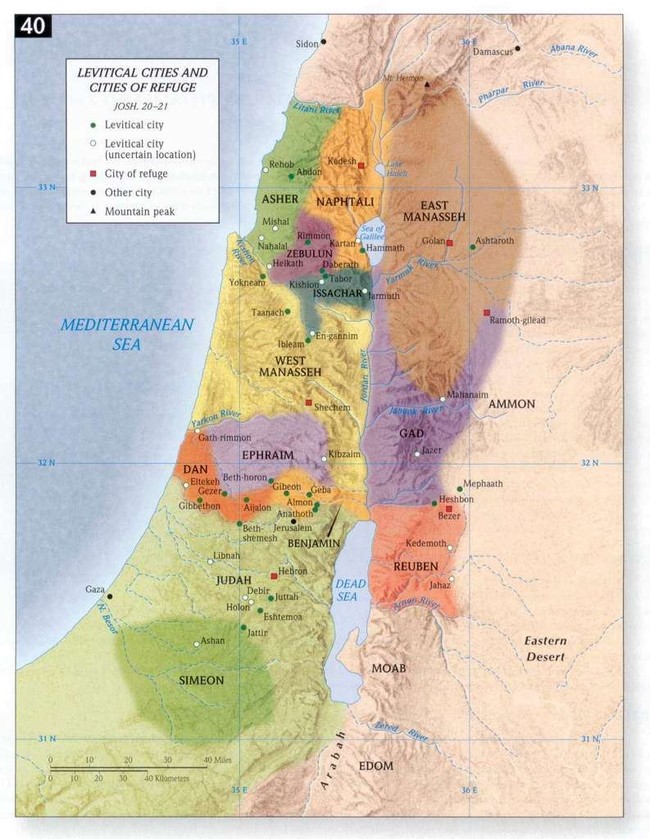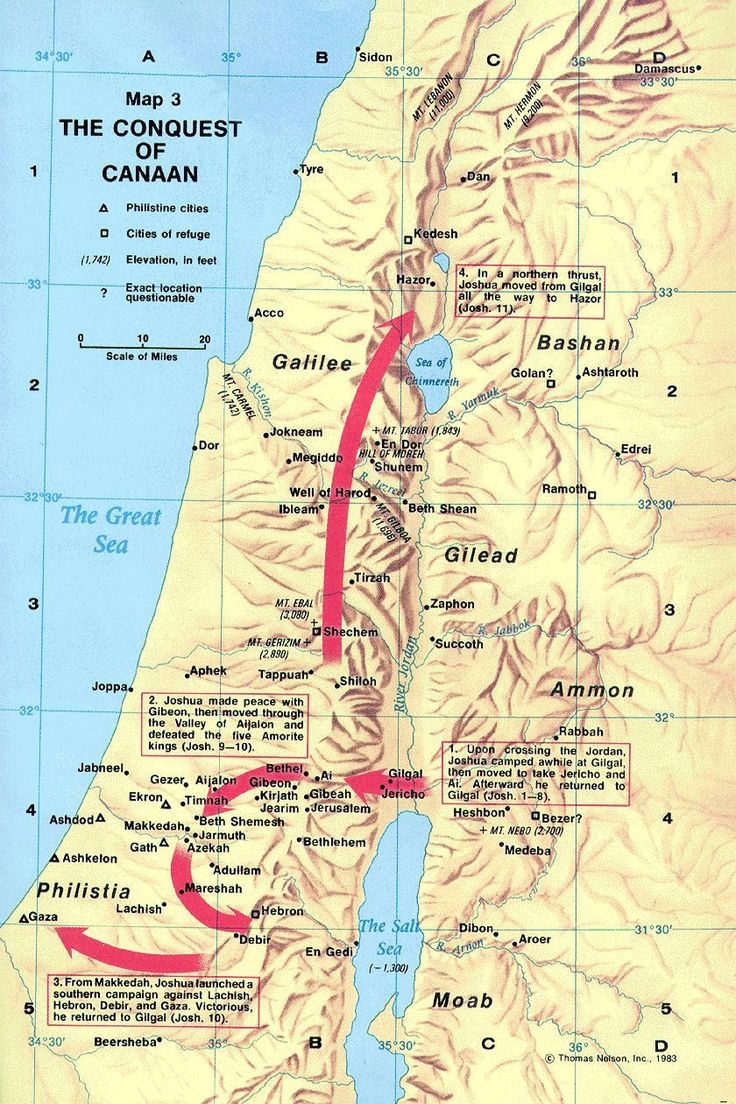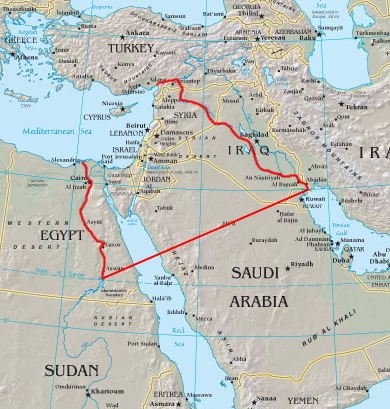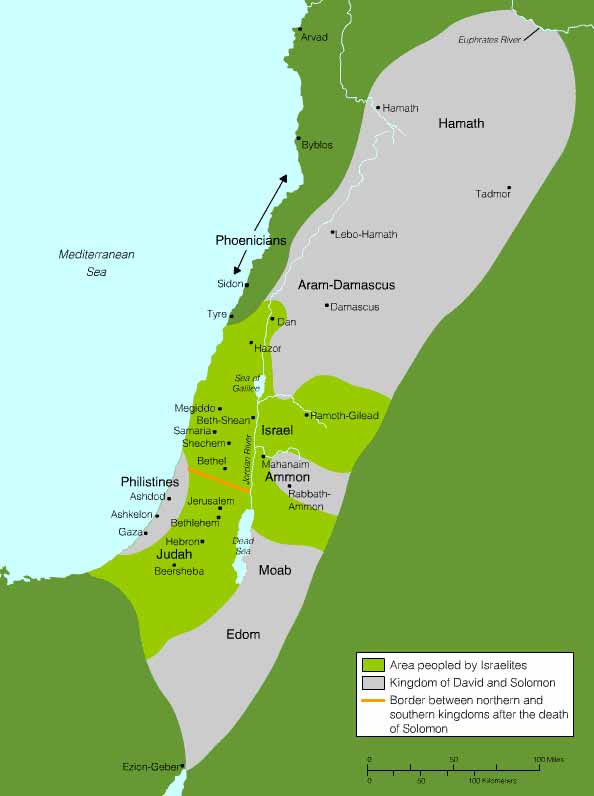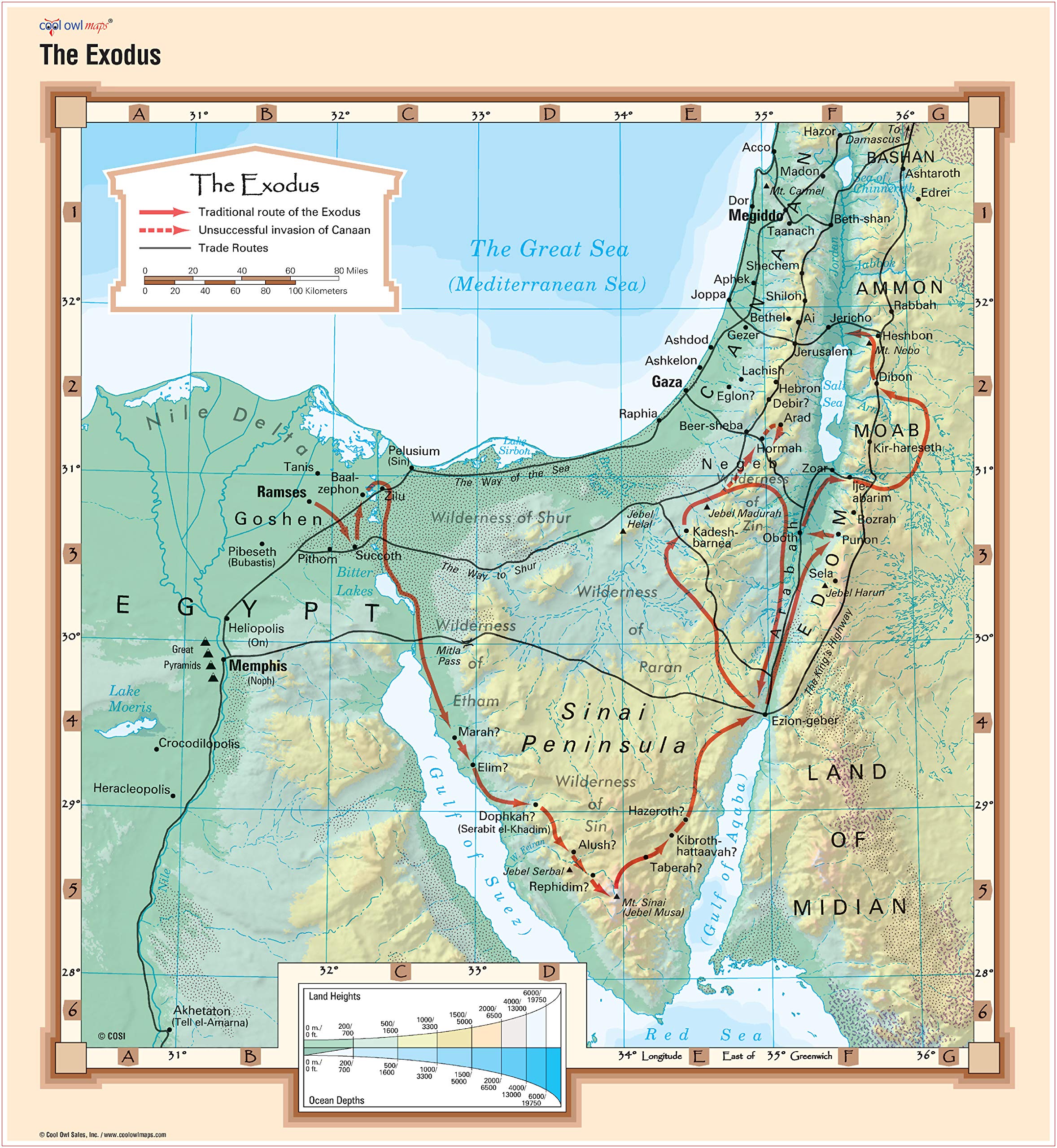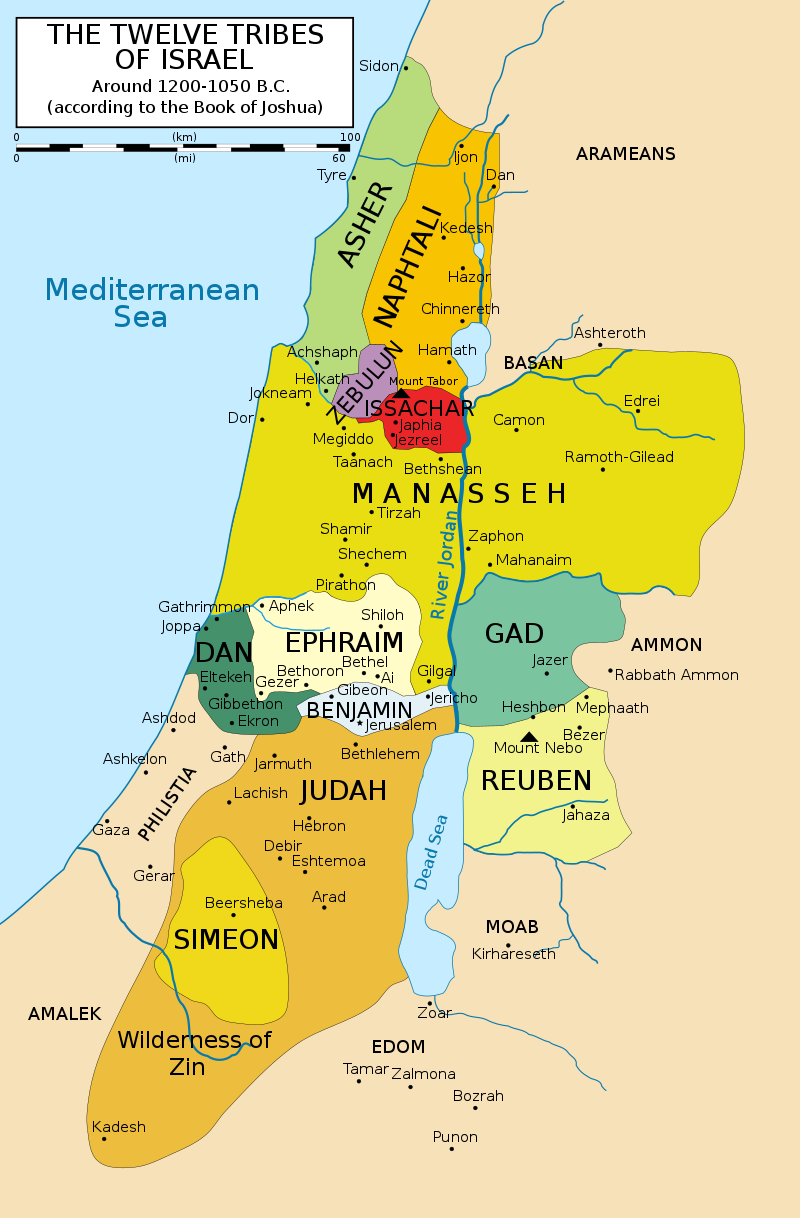47 When Saul had taken the kingship over Israel, he fought against all his enemies on every side, against Moab, against the Ammonites, against Edom, against the kings of Zobah, and against the Philistines. Wherever he turned he routed them. 48 And he did valiantly and struck the Amalekites and delivered Israel out of the hands of those who plundered them.
49 Now the sons of Saul were Jonathan, Ishvi, and Malchi-shua. And the names of his two daughters were these: the name of the firstborn was Merab, and the name of the younger Michal. 50 And the name of Saul’s wife was Ahinoam the daughter of Ahimaaz. And the name of the commander of his army was Abner the son of Ner, Saul’s uncle. 51 Kish was the father of Saul, and Ner the father of Abner was the son of Abiel.
52 There was hard fighting against the Philistines all the days of Saul. And when Saul saw any strong man, or any valiant man, he attached him to himself.
1 And Samuel said to Saul, “The Lord sent me to anoint you king over his people Israel; now therefore listen to the words of the Lord. 2 Thus says the Lord of hosts, ‘I have noted what Amalek did to Israel in opposing them on the way when they came up out of Egypt. 3 Now go and strike Amalek and devote to destruction all that they have. Do not spare them, but kill both man and woman, child and infant, ox and sheep, camel and donkey.’” – 1 Samuel 14:47-15:3 ESV
Saul failed to completely annihilate the Philistines, choosing instead to leave the field of battle at Michmash and return to his home base of Gibeah. With the Lord’s help, Saul’s son Jonathan had turned the once invincible Philistine army into a confused and panic-stricken rabble.
…panic broke out in the Philistine army, both in the camp and in the field, including even the outposts and raiding parties. And just then an earthquake struck, and everyone was terrified. – 1 Samuel 14:15 NLT
Saul could have easily put an end to the Philistine problem but he became distracted by a much less pressing issue. In the heat of the battle, Saul discovered that his own son had consumed honey and thus violated his earlier order commanding his soldiers to fast until the last Philistine was dead. The news of Jonathan’s disobedience caused Saul to lose interest in the battle and he “called back the army from chasing the Philistines, and the Philistines returned home” (1 Samuel 14:46 NLT).
But Saul went on to fight another day. He was still the official king of Israel and news of the Israelite’s victory over the Philistines soon spread throughout the region. To the rest of Israel’s enemies, it must have appeared that this formerly weak and defenseless band of rag-tag tribes had suddenly become a force to be reckoned with. Now that they had a king, they might lose their reputation as Canaan’s perennial pushover. Saul’s ascension to Israel’s throne got the attention of the neighboring nations, leading to a series of battles against “Moab, Ammon, Edom, the kings of Zobah, and the Philistines” (1 Samuel 14:47 NLT). The text doesn’t say who instigated these conflicts, but it does reveal that Saul enjoyed great success.
…wherever he turned, he was victorious. He performed great deeds and conquered the Amalekites, saving Israel from all those who had plundered them. – 1 Samuel 14:47-48 NLT
God had abandoned Saul and chosen to replace him but that doesn’t mean God was done with him. Saul remained God’s chosen instrument and would be used to protect and preserve God’s chosen people, the Israelites. God would keep the covenant promise He made to Abraham, Isaac, and Jacob. He would continue to prosper them despite their rejection of Him. He would give them victories over their enemies even though they repeatedly repaid His faithfulness with unfaithfulness.
Saul knew that his days were numbered because Samuel the prophet had delivered God’s stinging rebuke: “…your kingdom must end, for the Lord has sought out a man after his own heart. The Lord has already appointed him to be the leader of his people, because you have not kept the Lord’s command” (1 Samuel 13:14 NLT). But Samuel provided no timeline, leaving Saul in a constant state of angst-ridden anticipation, waiting for the second shoe to drop.
In some ways, Saul tried to move on, perhaps in an attempt to win back God’s favor. He performed his kingly duties well, leading the Israelites in victories over their ever-present enemies. But chapter 14 ends with a simple statement that speaks volumes about Saul’s flawed character and past mistakes.
The Israelites fought constantly with the Philistines throughout Saul’s lifetime. – 1 Samuel 14:52 NLT
Saul had been given a chance to destroy the Philistines but had failed to take advantage of it. As a result, the Philistines would become a proverbial and quite literal thorn in his side. This one nation would become Saul’s personal nemesis and a painful reminder of his less-than-flattering past and God’s chilling promise regarding his future. Saul must have realized that the Philistines would somehow play an important role in his God-ordained fate.
Chapter 14 also ends by setting the stage for all that is to come. It provides a short but insightful record of Saul’s family. This incomplete genealogical list contains the names of key individuals who will each play significant parts in the unfolding story of Saul’s life. Jonathan, Ishbosheth, Michal, and Abner will become all-too-familiar names to the reader and their presence in the closing paragraph of chapter 14 serves to presage the end of Saul’s reign and God’s plans for Israel’s future.
When chapter 15 opens, a nearly 25-year timelapse has occurred. Saul has been serving for 23 years as Israel’s king and during that time he has had little or no contact with Samuel the prophet. But one day Samuel suddenly shows up with an important word from God.
“It was the Lord who told me to anoint you as king of his people, Israel. Now listen to this message from the Lord! This is what the Lord of Heaven’s Armies has declared: I have decided to settle accounts with the nation of Amalek for opposing Israel when they came from Egypt. Now go and completely destroy the entire Amalekite nation—men, women, children, babies, cattle, sheep, goats, camels, and donkeys.” – 1 Samuel 15:1-3 NLT
Up until this point, Saul has been operating according to his own will. There is no indication that any of his battles with Israel’s enemies over the last two decades have been the result of God’s direct orders. His ongoing skirmishes with the Moabites, Ammonites, Edomites, and Philistines were reactionary in nature; he was simply responding to the ever-present threat of hostile forces.
But on this occasion, Samuel provides Saul with specific instructions regarding the Amalekites, a nomadic tribe inhabiting the area south of Canaan between Mount Seir and the Egyptian border. The Amalekites were descendants of Amalek, the son of Eliphaz and grandson of Esau (Genesis 36). When the Israelites were making their way to the land of Canaan under the direction of Moses, they were repeatedly attacked by bands of Amalekite raiders.
“Never forget what the Amalekites did to you as you came from Egypt. They attacked you when you were exhausted and weary, and they struck down those who were straggling behind. They had no fear of God. Therefore, when the Lord your God has given you rest from all your enemies in the land he is giving you as a special possession, you must destroy the Amalekites and erase their memory from under heaven. Never forget this!” – Deuteronomy 25:17-19 NLT
In a decisive battle against Amalek and his forces, Moses stood on a mountaintop overlooking the conflict taking place below. As long as he held the staff of God over his head, the Israelites had the advantage over their enemies. When he grew tired and the staff was lowered, the course of the battle shifted. But with the help of Aaron and Hur, Moses was able to keep the staff aloft and Joshua led Israel to victory over their enemy. As the Israelites celebrated their God-ordained victory, Moses received the following promise from the Lord: “I will erase the memory of Amalek from under heaven”’ (Exodus 17:14 NLT).
Now, centuries later, God was commanding Saul to fulfill that promise. It was time to erase the memory of the Amalekites and Saul was to be God’s instrument of judgment. For the first time in nearly a quarter of a century, Saul has received direct instructions from Jehovah and the details are very specific. He has been commanded to “devote to destruction all that they have” (1 Samuel 15:3 ESV). No man, woman, child, or domesticated animal is to be left alive. God was serious about erasing every memory of the Amalekites from under heaven. There was to be no bounty of captives taken. Anything related to the Amalekites was to be destroyed.
Saul had his marching orders. For years he had longed to hear from God and now the Almighty had spoken. The question will be whether he is willing to do what God has commanded him to do. Will he be obedient? Will God’s will take precedence over his own? What happens next will reveal the true condition of Saul’s heart and justify God’s earlier decision to reject him as king. A divine test is about to be administered that will expose Saul for who he really is.
English Standard Version (ESV) The Holy Bible, English Standard Version. ESV® Permanent Text Edition® (2016). Copyright © 2001 by Crossway Bibles, a publishing ministry of Good News Publishers.
New Living Translation (NLT) Holy Bible, New Living Translation, copyright © 1996, 2004, 2015 by Tyndale House Foundation. Used by permission of Tyndale House Publishers Inc., Carol Stream, Illinois 60188. All rights reserved.
